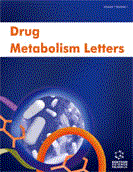Abstract
Introduction: Methadone is accepted as an alternative therapy in opioid use disorders worldwide. Methadone responsiveness, however, is affected by a range of CYP450 enzymes and OPRM1 polymorphisms.
Objective: This study sought to detect CYP2B6 and OPRM1 variants and their genotypes, as major contributors to inter-variability in methadone responsiveness and methadone dose requirements.
Methods: We carried out a prospective experimental one-phase pharmacogenetic study in four addiction clinics in Malaysia. Patients on stable methadone maintenance therapy were recruited. The prevalence of the CYP2B6 and OPRM1 polymorphisms was determined using a nested polymerase chain reaction (PCR), followed by genotyping. A two-step multiplex PCR method was developed to simultaneously detect the 26 SNPs in these two genes.
Results: 120 males were recruited for this study. The patients were between 21and 59 years old, although the majority of the patients were in their 30s. C64T and G15631T in CYP2B6and G31A, G691C, and A118G in OPRM1 were found to be polymorphic, and the allelic frequencies of each were calculated. We further detected eight new haplotypes.
Conclusion: C64T and G15631T in CYP2B6and G31A, G691C, and A118G in OPRM1were found to be polymorphic. The new haplotypes may give a new insight on methadone clinics.
Keywords: CYP2B6, OPRM1, methadone, opioids, OPRM1 Haplotypes, polymerase chain reaction.
Graphical Abstract
 43
43 10
10 1
1 1
1














